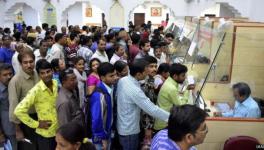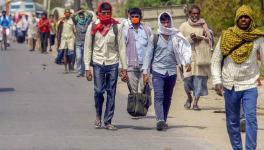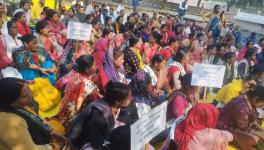COVID-19 Resurge in India: What Does a top Immunologist Think?

Image Courtesy: Pixabay
Delhi: India has been seeing a surge in COVID-19 cases. The Ministry of Health and Family Welfare (MoHFW) published the latest data (as on April 11, 8 AM), which says active cases have risen to 37,000, with 1,894 new cases in the past 24 hours.
Reports say that over 5,000 new cases have been detected in a day. With the rise in numbers, the central government has organised mock drills in hospitals nationwide.
Meanwhile, public concern has increased, given the horrific memories during wide-scale surges by the delta variant. The spring of 2021 saw a large number of deaths and a massive scarcity of hospital facilities across the country. Reports showing the numbers can easily fuel unnecessary panic. But the question is how far the data helps draw a reasonable inference about the COVID-19 situation in the country. Several aspects are to be considered in drawing some meaningful conclusion, like testing, surveillance of the variants to decipher which one is dominating etc.
NewsClick spoke to noted immunologist Prof Satyajit Rath to understand to judge the situation. On being asked how he sees the situation and whether he thinks a crisis is knocking at the door, Prof Rath said, “Since data collection has become increasingly haphazard in terms of how many tests are being done, which categories are being tested, which tests are getting reported and which are not, etc., I am not sure if anything can be reliably inferred from these apparent numbers.”
“However, it is quite likely that COVID-19 infections will be waxing and waning in communities everywhere, including in India. This will likely be the outcome of the emergence of viral variants, the state of vaccine/infection-generated immunity in communities and other environmental factors such as weather, etc.,” he said.
Rath indicated that the fashion in which COVID-19 tests are done implies the possibility of not-so-updated statistics – an issue that has been raised from the early period of the pandemic by several other experts. Noted microbiologist Gagandeep Kang had said earlier that testing in India is not up to the mark to check community transmission and also termed the testing database a ‘black hole’. Rath’s comment hints that the data still need betterment, at least to draw some meaningful inference.
However, precaution at any time is always a better option. Rath also has some points on the precautionary measures. He said, “ I certainly think that the elderly, the co-morbid and other immunocompromised categories of people should be taking vaccine booster doses and using masks. Similarly, I think that it is appropriate for anyone with any respiratory symptoms to use efficient masks, regardless of whether they have been tested for covid.”
Rath has a message for the government. He said, “However, I also think that governments at all levels need to wake up to two realities; one is that Covid will have to be dealt with, in terms of new variants, and of long covid outcomes, for a long time to come. The second issue is the lesson we should have learnt from the pandemic, namely, that our public health care systems are inadequate in various ways and need far greater commitments from the state.”
‘VARIANT UNDER MONITORING’ BY WHO GROWING IN INDIA
A proper assessment of the situation also involves a proper assessment of the variants that circulate. Surveillance of the variants has become part and parcel of the COVID-19 management strategy.
INSACOG (The Indian SARS-CoV-2 Genomics Consortium), the pan-India network of laboratories to monitor the viral variants in the country in its latest bulletin, published on March 27, said that the new recombinant variant named XBB.1.16 is growing in India and accounts for 38.2% of the cases. The bulletin also states that Omicron and its sub-lineages are continuing as dominant variants in India. The World Health Organization (WHO) has also termed XBB.1.16 as a variant under monitoring.
A study on this variant, which has been widely reported in Indian media, suggests that it has a greater growth advantage in the human population, along with having a profound immune evasion capacity. The study also says that variant XBB.1.16 has a reproductive number 1.27 to 1.17-fold higher in comparison to its parent variants, namely XBB.1 and XBB.1.5. The reproductive number suggests the ability of a virus to spread from one infected person to others. A reproductive number 3 means that the virus can spread from an infected person to three others.
This variant has been detected in several other countries across the world. On the increasing trend of XBB.1.16 in India, Rath said, “While it is quite correct that some of these new SARS-CoV-2 variants are somewhat more efficient both at spreading and at avoiding neutralisation by vaccine-generated antibodies, I doubt very much if that is going to result in massive caseloads, especially of seriously ill people, of the sort and magnitude we saw a couple of years ago.”
“Supporting this likelihood, the frequency of serious illness with these new variants does not appear to have gone up either,” Rath added.
It, however, remains largely unclear whether the vaccines administered among the Indian population would be effective against the new variant having immune evading capacity as the study suggested.
Get the latest reports & analysis with people's perspective on Protests, movements & deep analytical videos, discussions of the current affairs in your Telegram app. Subscribe to NewsClick's Telegram channel & get Real-Time updates on stories, as they get published on our website.
























